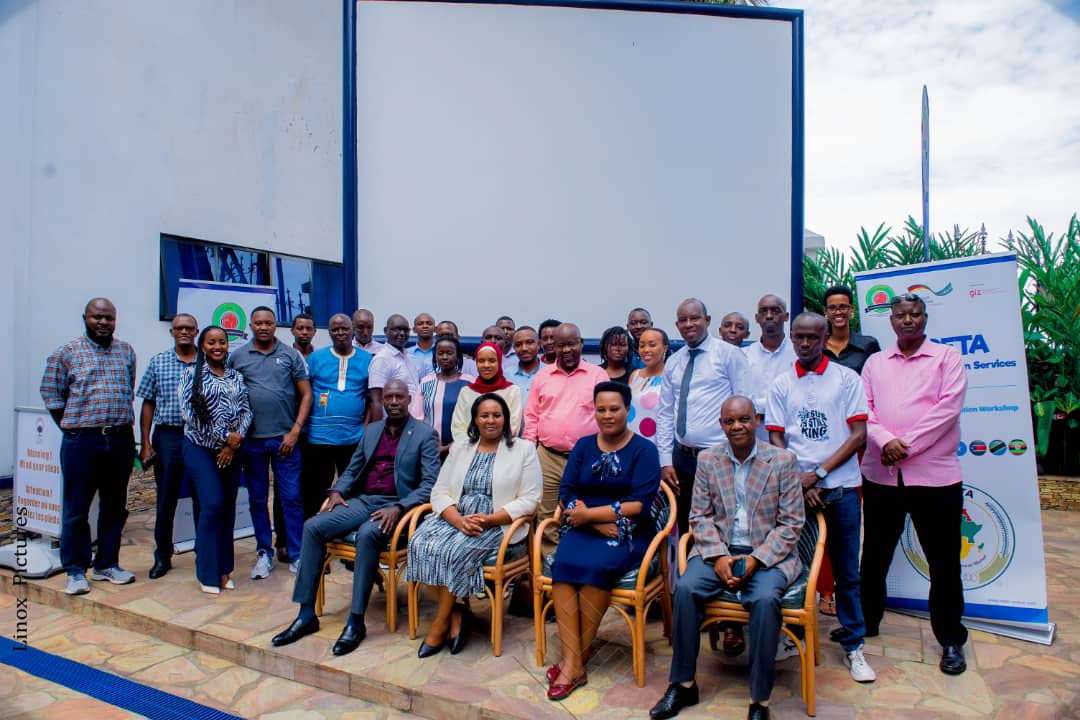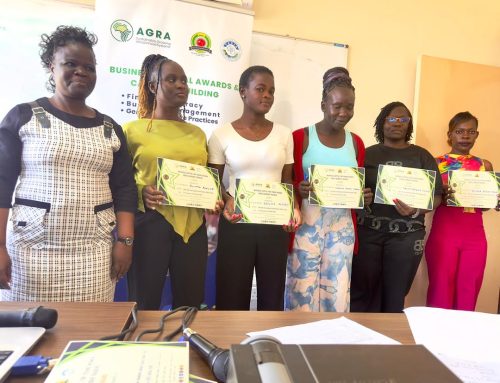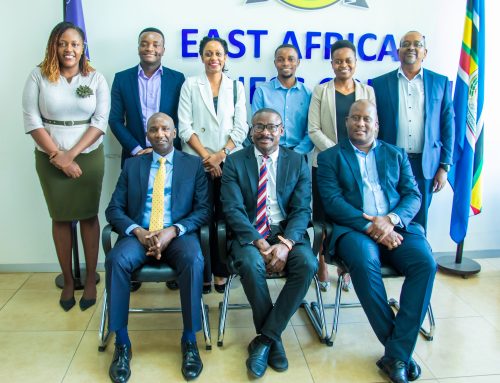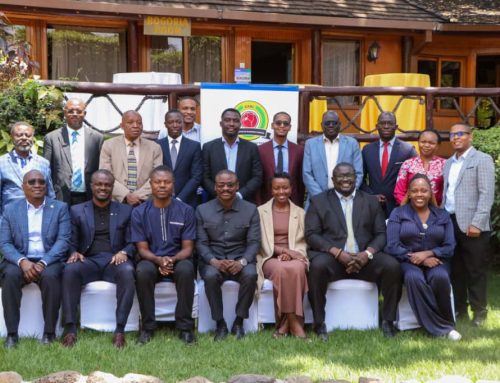EABC AND GIZ IMPROVE CAPACITY OF 50 BUSINESS LEADERS IN TRANSPORT AND TOURISM ON AFCFTA PROTOCOL ON TRADE IN SERVICES IN BURUNDI
- Trade in Services account 12.5% of Burundi’s Gross Domestic Product.
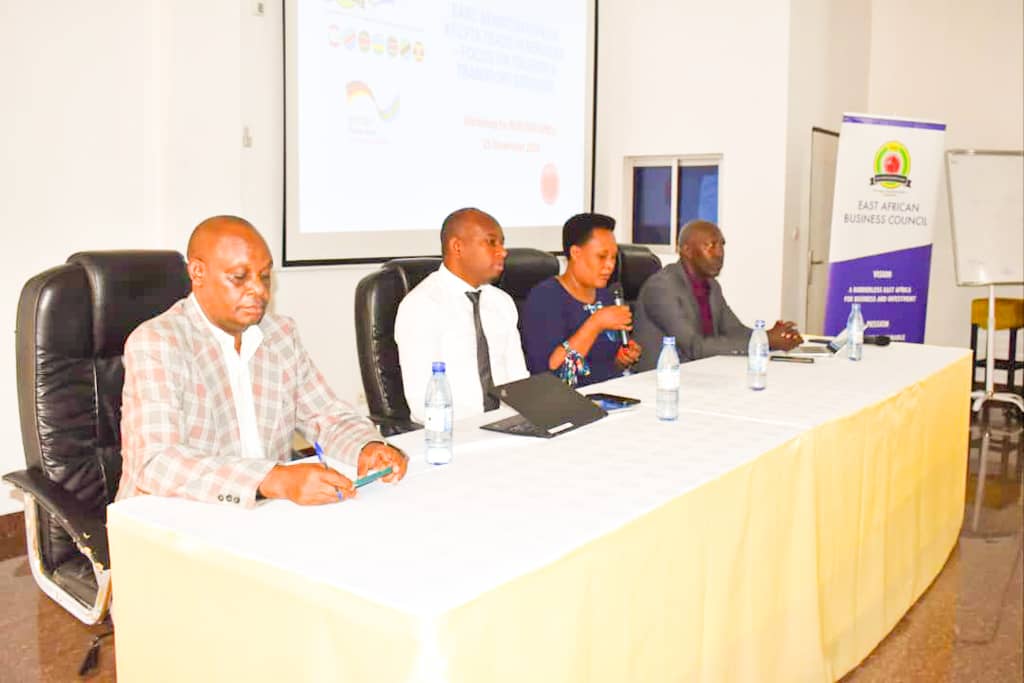 Bujumbura, Burundi, 26th November 2024: The East African Business Council (EABC), in partnership with GIZ, conducted a sensitization workshop on the AfCFTA Protocol on Trade in Services, focusing on the transport and tourism sectors.
Bujumbura, Burundi, 26th November 2024: The East African Business Council (EABC), in partnership with GIZ, conducted a sensitization workshop on the AfCFTA Protocol on Trade in Services, focusing on the transport and tourism sectors.
In his opening remarks, Mr. Herman Ndayisaba, Chairman of the Burundi Sectoral Chamber of Hospitality and Tourism Association (HTB), expressed gratitude to EABC and GIZ for organizing the workshop. He highlighted the significant potential of tourism to contribute to economic development, employment creation, and financial opportunities in Burundi, the region, and Africa as a whole.
“Tourism creates jobs, strengthens local economies, contributes to infrastructure development, conserves natural environments and cultural heritage, and reduces poverty,” Mr. Ndayisaba noted. However, he underscored the underdevelopment of tourism in Burundi and the shortage of skilled employees as key challenges.
Ms. Mediatrice Nizigiyimana, EABC National Liaison Officer for Burundi, emphasized that under the AfCFTA, the five EAC Partner States have jointly submitted a Schedule of Specific Commitments for five priority sectors: business services, communication services, financial services, tourism and travel-related services, and transport services. She elaborated that Trade in Services account 12.5% of Burundi’s Gross Domestic Product.
According to the 2nd Edition of the EABC Barometer on Trade in Services in the East African Community (EAC) conducted this year, the EAC region is a net exporter of travel and travel-related services. In 2023, the EAC exported travel services worth USD 6.3 billion, compared to imports of USD 1.2 billion. In 2021, Burundi exported travel services worth USD 0.577 million while importing USD 18.9 million, resulting in a deficit of USD 18.3 million, making Burundi a net importer of tourism services.
On air transport services, the EAC bloc is a net importer. In 2023, the region imported air transport services worth USD 5.6 billion while exporting services worth USD 4.6 billion. For Burundi, air transport exports in 2021 totaled USD 3.1 million, while imports reached USD 196.8 million. Despite being a landlocked country, Burundi can leverage its strategic location as a land-linked nation to enhance its transport service exports by offering services to neighboring countries such as Eastern DRC and Rwanda.
Mr. Alexis Nzitonda, Expert in Trade in Services from GIZ-EAC, stated that the workshop aimed to raise awareness among business leaders about the AfCFTA Protocol on Trade in Services, particularly in tourism, travel, and transport services, and the implications of Burundi’s Schedule of Specific Commitments under the AfCFTA.
Participants engaged in discussions on the opportunities and challenges associated with the liberalization of tourism, travel-related, and transport sectors under the AfCFTA Protocol on Trade in Services.
Mr. Philippe Ndikumana, Chairman of the Federation of East African Freight Forwarders Associations (FEAFFA) and representative of the Burundi Clearing and Forwarders Association (ABADT), underscored the importance of liberalizing transport and logistics in Burundi. He highlighted its potential to attract investors, remove restrictions, and reduce the cost of doing business.
At the EAC level, significant progress has been made, including the establishment of One-Stop Border Posts (OSBPs), reductions in Non-Tariff Barriers (NTBs), enhanced operations at the Port of Mombasa, improved road networks, technological adoption, and consistent private sector engagement. However, inadequate dry port facilities remain a bottleneck, causing delays and increasing the cost of doing business across the region.
Addressing these challenges is critical to improving the region’s competitiveness as East Africa strives to boost intra-African trade under the AfCFTA.
The workshop was attended by 50 participants from associations representing clearing and forwarding agents, the tourism and hospitality sector, and air travel agencies.

